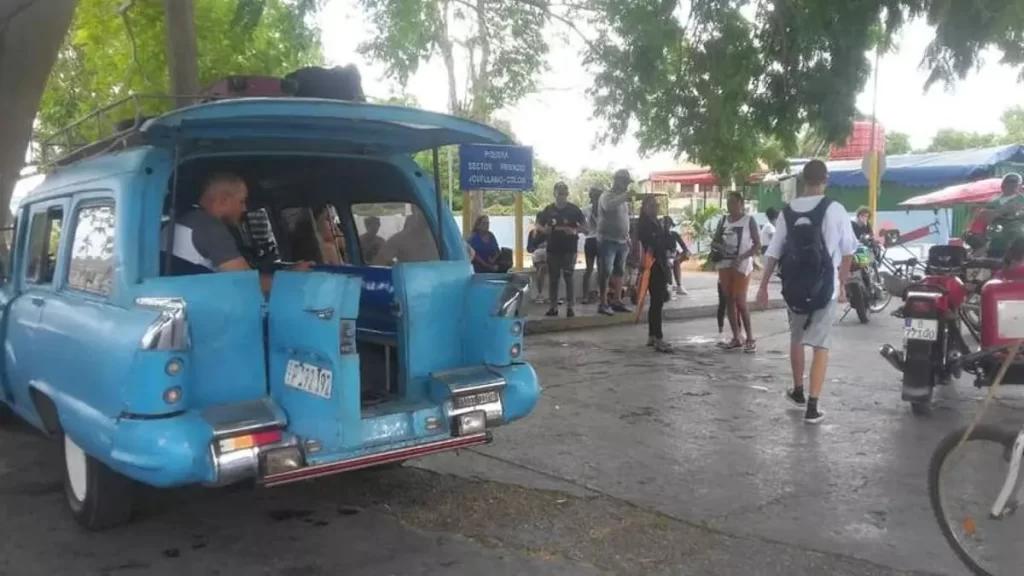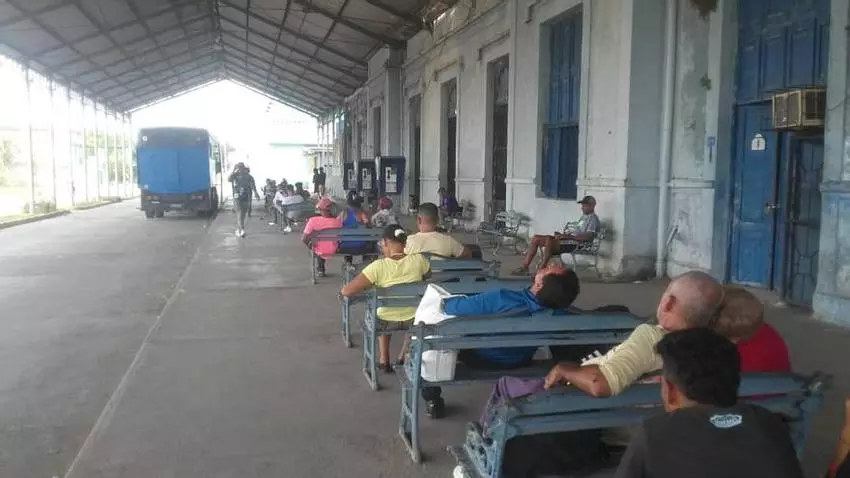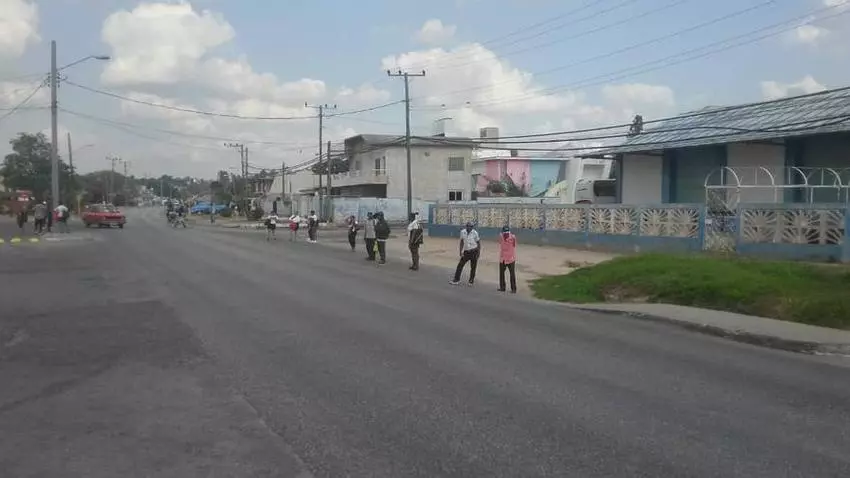A ticket on a state bus costs 20 pesos and, in private trucks, 250, but “state buses are scarce”

![]() 14ymedio, Julio César Contreras, Matanzas, 28 May 2024 — Marlén wakes up at dawn, but she is not the first to arrive at the Matanzas bus terminal – the only one in the city – where the broken state transport, the truckers traveling to Havana and private taxi drivers congregate. She had not visited the place for months, but now, due to paperwork in the Civil Registry, she must return to the municipality where she was born, Unión de Reyes.
14ymedio, Julio César Contreras, Matanzas, 28 May 2024 — Marlén wakes up at dawn, but she is not the first to arrive at the Matanzas bus terminal – the only one in the city – where the broken state transport, the truckers traveling to Havana and private taxi drivers congregate. She had not visited the place for months, but now, due to paperwork in the Civil Registry, she must return to the municipality where she was born, Unión de Reyes.
When it comes to describing the transportation situation, a look at the boarding point says it all: the architecture damaged due to lack of restoration, a single employee who writes down or calls people on the waiting lists and who, at the same time, corrects the tickets booked in advance, the dirty bathrooms without water and the rusty benches complete the picture.
“There is not a single corner in this place where you feel comfortable. Everything is dusty and dirty. There are no bag lockers, so travelers must carry their luggage from the place where they get the ticket to the baggage compartment of the bus itself. The cafeteria doesn’t sell anything either and it’s common for buses to be late,” Marlén complains.

The woman from Matanzas managed to get on the waiting list for Unión de Reyes, but first she had to wait half an hour for the terminal employee to finish selling tickets for a last-minute car to Havana and correct the list of passengers to Santiago de Cuba. The long wait allows you to “take a walk” around the area where private vehicles wait, but the prices make you turn around: 500 pesos to Unión de Reyes, because it is close, but for the trip to more distant destinations like Jovellanos or Colón it is between 600 and 800 pesos.
Meanwhile, a ticket on a state bus costs 20 pesos and, on private trucks, 250. However, “state buses are scarce.” “We try to at least cover a daily route to most municipalities, but the harsh reality is that sometimes that plan cannot be fulfilled. We also do not have fuel for our buses, so inter-municipal transportation often depends entirely on individuals,” an official from the terminal explains to this newspaper.
At the exit from the city, in the place known as Los Amarillos (‘The Yellows’), Ivis has been there for approximately an hour and a half. The name given to the site is due to the presence of inspectors who stop the cars driving by to facilitate the boarding of people. However, no inspector showed up at the stop this Tuesday, so the state and private cars, full and empty, pass at high speed without picking up anyone.

To visit her parents in the municipality of Limonar, Ivis must take at least two transport option, both on the way out and back. “I do this once a week, because my parents are very old, and I often find myself on road at night.” Ivis remembers that several times she has heard, on the street and in the official media, that state vehicles must stop at the collection points but, in reality, “almost all the drivers continue on by as if people were invisible.” As the only refuge from the sun and inclement weather, the stop has a narrow roof and a cement wall to sit on. Travelers must choose between staying in the shelter until a car voluntarily stops – which almost never happens – or staying in the shelter and not getting any transportation.
Another stop, at the Viaduct, has become dangerous lately, since in the tumult of people desperate to get on board, there is a proliferation of thefts of cell phones, wallets, among other valuable belongings. Claudia is among the vendors there, offering slushies, pizza or canned soda. The woman watches in amazement as the Transtur and Transgaviota buses continue on their way to Varadero. They have empty seats, but they pass without any intention of heeding the signal from the inspector, who asks them to stop.
“These drivers think they own the buses,” says a man sitting next to Claudia. The answer is not long in coming: “Yes, in reality the drivers are the owners because they buy, with their money, everything from tires to fuel,” responds another young man. “In the end one has to agree with them. I have a friend who takes a ticket and charges 500 pesos per person to Varadero and in the end he gets very little money even though it is exaggerated for us. Everything goes to gasoline, repairs and paying the rent to the owner of the car,” says the young woman, a hotel receptionist.

“Hotels have buses for workers, but they leave at certain times and if my work shift doesn’t coincide, I have to come here ready to leave as soon as it comes,” he explains. Claudia admits that riding the workers’ buses is much more comfortable, but “that comfort depends on the fact that they don’t stop to pick up anyone other than the employees, even though sometimes they are half empty.”
After a long wait, Marlén is the first of the three women who manages to take a bus to Unión de Reyes. She had to pay the driver 80 pesos above the ticket price, but she has finally achieved her goal. Ivis, for her part, continues at the pick-up point and knows that if she does not board soon she will have to return home because she will not have enough time to visit her family.
Claudia, meanwhile, manages to get on a truck that takes her to Varadero for 300 pesos. But the problem doesn’t end there. As soon as she sets foot on the peninsula she thinks about the return trip. “Today I finish the night shift and I don’t know how I’m going to turn around,” she laments.
____________
COLLABORATE WITH OUR WORK: The 14ymedio team is committed to practicing serious journalism that reflects Cuba’s reality in all its depth. Thank you for joining us on this long journey. We invite you to continue supporting us by becoming a member of 14ymedio now. Together we can continue transforming journalism in Cuba.
